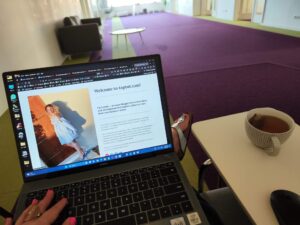Emotional intelligence is a crucial skill that plays a significant role in personal growth and success. It refers to the ability to recognize, understand, and manage our own emotions, as well as the emotions of others. Developing emotional intelligence allows individuals to navigate relationships, make better decisions, and improve overall well-being.
One effective way to enhance emotional intelligence is through self-reflection. Self-reflection involves taking the time to examine our thoughts, feelings, and behaviors and gaining insight into ourselves. It allows us to become more self-aware and understand the patterns and triggers behind our emotions.
Understanding the Importance of Self-Reflection in Emotional Intelligence Development
Self-reflection is a powerful tool for developing emotional intelligence because it allows individuals to gain insight into their emotions and behaviors.
By reflecting on our experiences, we can better understand why we feel the way we do and how our emotions impact our actions. This self-awareness is essential for developing emotional intelligence because it enables us to recognize and manage our emotions effectively.
Self-reflection also helps individuals identify patterns and triggers in their emotions. Examining our thoughts, feelings, and behaviors over time, we can start seeing recurring patterns that may influence our emotional responses. For example, we may notice that we tend to feel anxious before essential meetings or become angry when someone criticizes us. Recognizing these patterns allows us to anticipate and manage our emotions more effectively.
What is a Bujo Mood Tracker and How Does it Work?
A Bujo mood tracker is a tool used in bullet journaling to track and monitor emotions over time. Bujo, short for bullet journaling, is a method of journaling that combines elements of planning, organization, and creativity. A Bujo mood tracker is typically a page or spreads in a bullet journal dedicated to recording daily or weekly emotions.
To set up a Bujo mood tracker, individuals create a grid or chart with different emotions listed along one axis and dates or days of the week along the other. Each day, individuals color in or mark the corresponding emotion based on their feelings. Over time, this visual representation allows individuals to see patterns and trends in their emotions.
How a Bujo Mood Tracker Can Help You Recognize Patterns in Your Emotions
A Bujo mood tracker is an excellent tool for recognizing emotion patterns because it provides a visual representation of how we feel over time. Consistently tracking our emotions, we can start to see trends and patterns that may not be apparent at the moment. For example, we may notice that we tend to feel more anxious on certain days of the week or that our mood improves after engaging in a particular activity.
Identifying these patterns can be incredibly valuable because it allows us to anticipate and prepare for specific emotional states. For example, suppose we notice that we consistently feel stressed on Mondays. In that case, we can take proactive steps to manage our stress, such as practicing relaxation techniques or scheduling enjoyable activities.
Enhancing Self-Awareness Through Regular Use of a Bujo Mood Tracker
Regular use of a Bujo mood tracker promotes self-awareness, a critical component of emotional intelligence. By consistently tracking our emotions, we become more attuned to how and why we feel that way. This self-awareness allows us to recognize and understand our emotional triggers and responses.
Self-awareness is essential for emotional intelligence because it enables us to regulate our emotions effectively. When we are aware of our emotional state, we can make conscious choices about responding rather than reacting impulsively. For example, if we notice that we are feeling angry, we can take a step back, assess the situation objectively, and choose a more constructive response.
The Role of Emotional Intelligence in Personal Growth and Success
Emotional intelligence plays a crucial role in personal growth and success. It allows individuals to navigate relationships effectively, make better decisions, and improve overall well-being. When we are emotionally intelligent, we can better understand and manage our own emotions, as well as the emotions of others.
Emotional intelligence allows us to communicate effectively, resolve conflicts, and build strong connections in relationships. By understanding our emotions and being empathetic towards others, we can navigate difficult conversations with compassion and understanding. This leads to healthier and more fulfilling relationships.
Emotional intelligence also enhances decision-making by allowing us to consider both our emotions and rational thoughts. When we know our emotions and how they may influence our decisions, we can make choices that align with our values and long-term goals. This leads to more successful outcomes and a greater sense of fulfillment.
Emotional intelligence contributes to personal growth and success by improving self-awareness, empathy, communication skills, and decision-making abilities.
Utilizing a Bujo Mood Tracker to Identify Triggers and Manage Emotional Responses
A Bujo mood tracker can be a valuable tool for identifying triggers for certain emotions and developing strategies for managing emotional responses. By consistently tracking our emotions, we can start to notice patterns in what triggers certain emotional states. For example, we may notice that we feel anxious after spending time with a particular person or happy after engaging in creative activities.
Once we have identified these triggers, we can develop strategies for managing our emotional responses. For example, suppose spending time with a specific person tends to make us anxious. In that case, we can set boundaries or practice relaxation techniques before and after interacting with them. By proactively managing our emotions, we can prevent them from negatively impacting our well-being.
Tracking Emotional Progress with a Bujo Mood Tracker: Celebrating Achievements and Identifying Areas for Improvement
One of the benefits of using a Bujo mood tracker is that it allows us to track our emotional progress over time. By looking back at previous entries, we can see how our emotions have changed and evolved. This can be incredibly empowering and motivating, as it allows us to celebrate our achievements and recognize our progress.
Additionally, tracking our emotions with a Bujo mood tracker helps us identify areas for improvement in our emotional intelligence development. By reflecting on our emotional patterns and responses, we can identify areas where we may need to work on regulating our emotions or developing better-coping strategies. This self-awareness allows us to take proactive steps toward personal growth and emotional well-being.
Cultivating Empathy and Compassion Through Self-Reflection with a Bujo Mood Tracker
Self-reflection with a Bujo mood tracker can help individuals develop empathy and compassion. By understanding our own emotions and how they impact us, we can also develop a better understanding of others’ emotions. This understanding allows us to empathize with others and respond with compassion.
When we are aware of our own emotional experiences, we can better put ourselves in someone else’s shoes and understand their perspective. This empathy and compassion can strengthen relationships, improve communication, and create a more supportive and understanding environment.
The Therapeutic Benefits of Journaling and Self-Reflection
Journaling and self-reflection have long been recognized for their therapeutic benefits. Writing down our thoughts, feelings, and experiences can be a form of catharsis and stress relief. It allows us to process our emotions, gain clarity, and release pent-up tension or anxiety.
Self-reflection through journaling also provides an opportunity for self-care. Focusing on ourselves, our thoughts and our emotions can be incredibly nourishing and rejuvenating. It allows us to prioritize our well-being and create space for self-discovery and personal growth.
Tips and Techniques for Effective Use of a Bujo Mood Tracker in Enhancing Emotional Intelligence
To use a Bujo mood tracker effectively and enhance emotional intelligence, consider the following tips and techniques:
1. Be consistent: Make it a habit to track your emotions daily or weekly. Consistency is vital in recognizing patterns and trends.
2. Be honest: When filling out your Bujo mood tracker, be honest with yourself about your feelings. This will provide accurate data for reflection and analysis.
3. Reflect regularly: Take the time to reflect on your entries and look for patterns or triggers in your emotions. Consider what may have influenced your emotional state and how you responded.
4. Celebrate achievements: When you notice positive changes in your emotional patterns or responses, celebrate them! Acknowledge your progress and give yourself credit for the work you have done.
5. Seek support: If you struggle to manage your emotions or identify patterns, consider seeking support from a therapist or counselor. They can provide guidance and help you develop strategies for emotional regulation.
Conclusion
Self-reflection is a powerful tool for developing emotional intelligence, and a Bujo mood tracker can effectively facilitate this process. By consistently tracking our emotions, we can gain insight into our emotional patterns, identify triggers, and develop strategies for managing our emotional responses. This self-awareness allows us to navigate relationships more effectively, make better decisions, and improve overall well-being. So why not use a Bujo mood tracker today to enhance your emotional intelligence?
Data analytics expert. As an analyst and project manager, I have proven to be a strong leader and team player in maintaining a suitable workspace for workers and industries in the oil and gas sector.
By taking into account various factors, with the assistance of state of the art technologies and the utilization of Big Data Analytics.
This includes considering various aspects like volume, velocity, variety, veracity, value together with complexity.
With the recent advent of data recording sensors in exploration, drilling, and production operations, oil and gas industry has become a massive data intensive industry.






